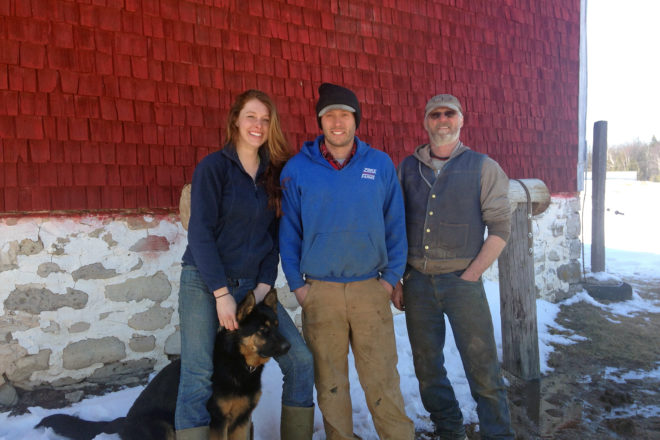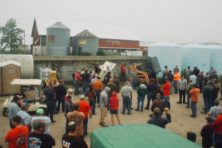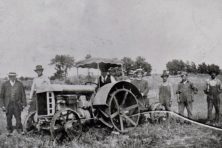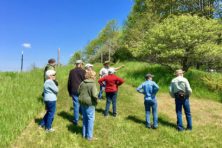Bryan Haberli: Farming is Sustainable with Smart Practices
- Share
- Tweet
- Pin
- Share

Last September when the county Land Conservation Committee met to discuss changes to NR 151, the state’s manure-handling rule, in northeastern Wisconsin’s karst region, Egg Harbor farmer Bryan Haberli was one of those to speak against the change that would prevent manure from being spread on soils of less than two feet.
He agreed that something needs to be done to fix “the broken system,” but after the meeting, Haberli said he didn’t hear anything to change his opinion that his farm and others are in danger with these rules.
At the time, he thought this new rule might spell the end for the farm his great-grandfather started in 1912.
“If this passes as is, there will be no small farms in Door County,” he said at the time.
Today he is not as alarmed by the rule change.
“We’ve been working with [Door County] Soil and Water,” he said. “Until this depth to bedrock thing, the regulations just fell in line. Everything they regulated just made sense as far as storing manure and spreading. It was all just common sense. Depth to bedrock is, too. Do your nutrient management plan, which is something we’ve always done. Figure out where you can spread on your two feet or more, and be smart about what’s left over.”
Haberli’s father, Norb, took over the farm about eight years ago.
“He’s 62 and he’s turning it over to me, my sister and my wife. I got married last summer,” he said. “I just always knew that this is what I would do.”
He enjoys the idea of the many different skills and constant problem-solving required to be a small farmer.
“Veterinarian, nutritionist, agronomist, banker, electrician, plumber. The more you can do in house, the more efficient you will be,” he said.
“There are so many different aspects to it, it keeps your mind busy. I couldn’t do a job where you have to do the same thing every day.”
While he is particularly adept at mechanics and enjoys the science involved with crops, his wife, Emily, “is a great herdsman and deals with the genetic side of the animals. She does the breeding, and really improves the production of the herd through genetics.”
Bryan said his focus now is on soil health and soil science.
“We’re transitioning to no-till and we’re 100 percent cover crop to help build soil health,” he said, adding that this kind of progressive thinking is what will make farming sustainable in Northern Door, even with the new rules.
“The depth to bedrock is an easy thing for them to police, but it’s only a small fraction of what’s causing water problems. I’d say it’s more tillage and mismanagement. It’s a lot of issues, with monocropping and tillage and not having that cover,” he said. “Farms of all sizes are contributing to poor water quality. Farms of all sizes can do better. If you’re not striving for efficiency, you’re not going to make it.”
Diversity has always been the key to keeping the farm afloat, he said. In addition to dairying, the Haberlis do forestry, they have a few horses, they’ve expanded into cash cropping.
“And we’ve always been mechanics. That’s how we’ve gotten through a lot of the tough times,” he said.
Bryan and Emily have a herd of Black Angus beef cattle they raise for meat under the name Door County Cattle Co. They are now licensed to sell meat directly from the farm. They take pride that the cattle are raised on a healthy forage-based diet with no growth hormones or antibiotics.
Call or text the Door County Cattle Co. for information on their Angus beef, 920.904.0664.



